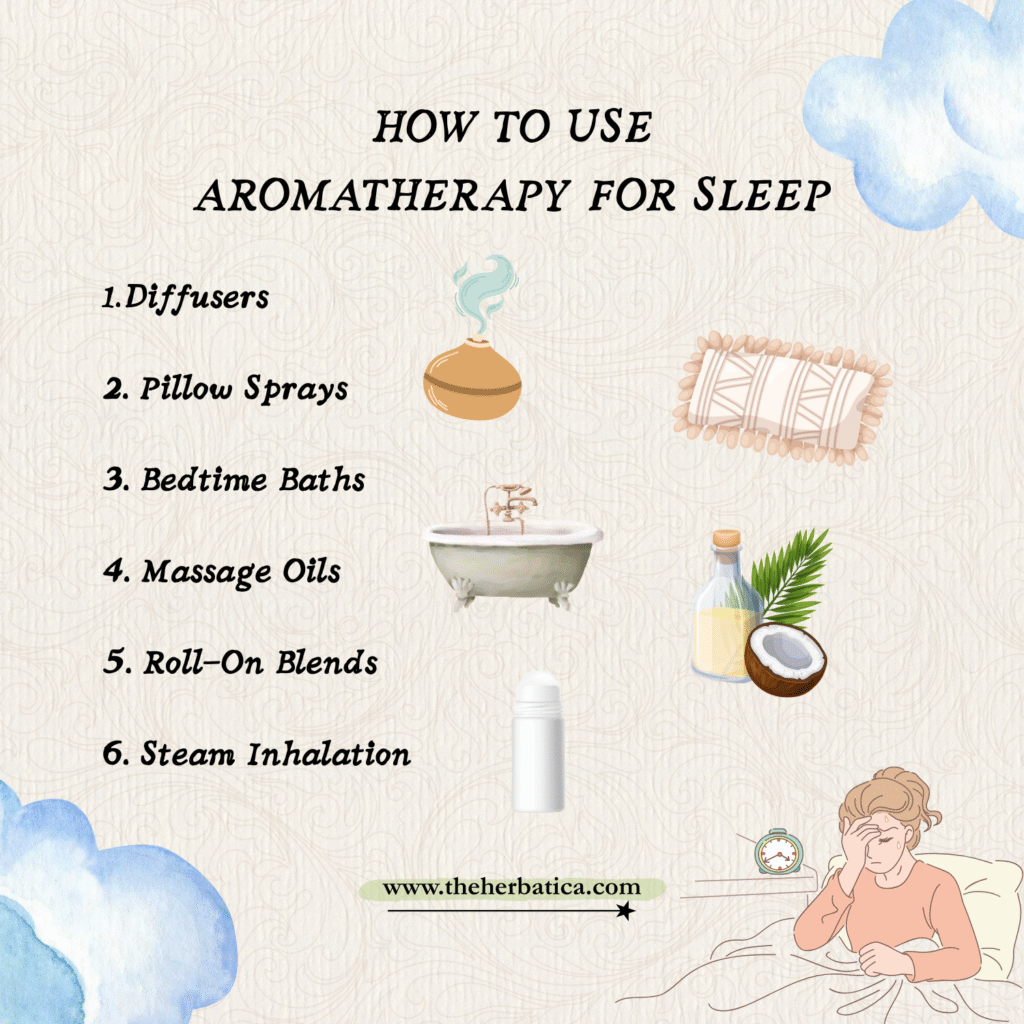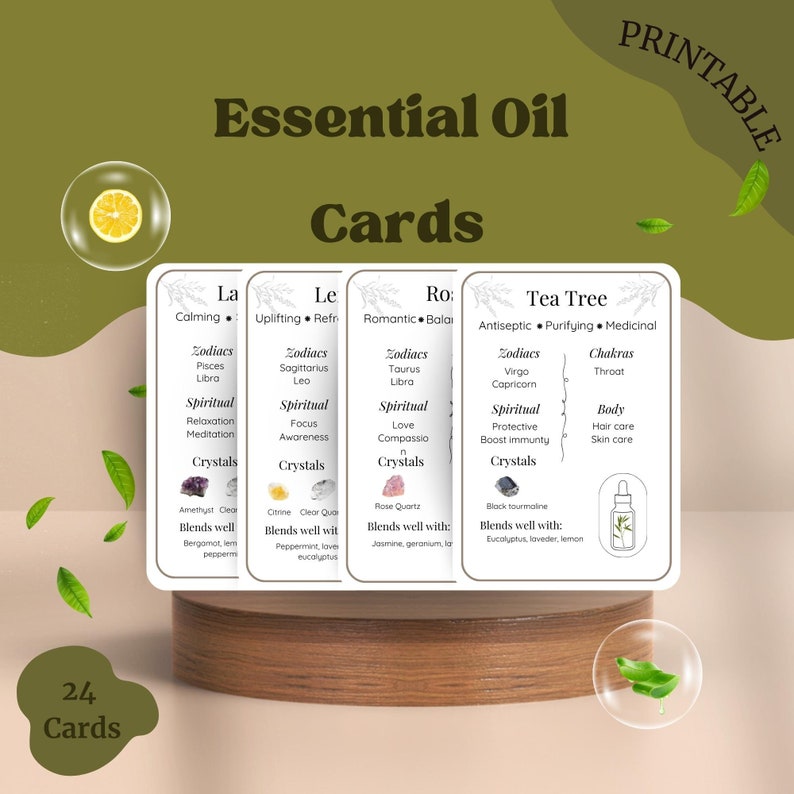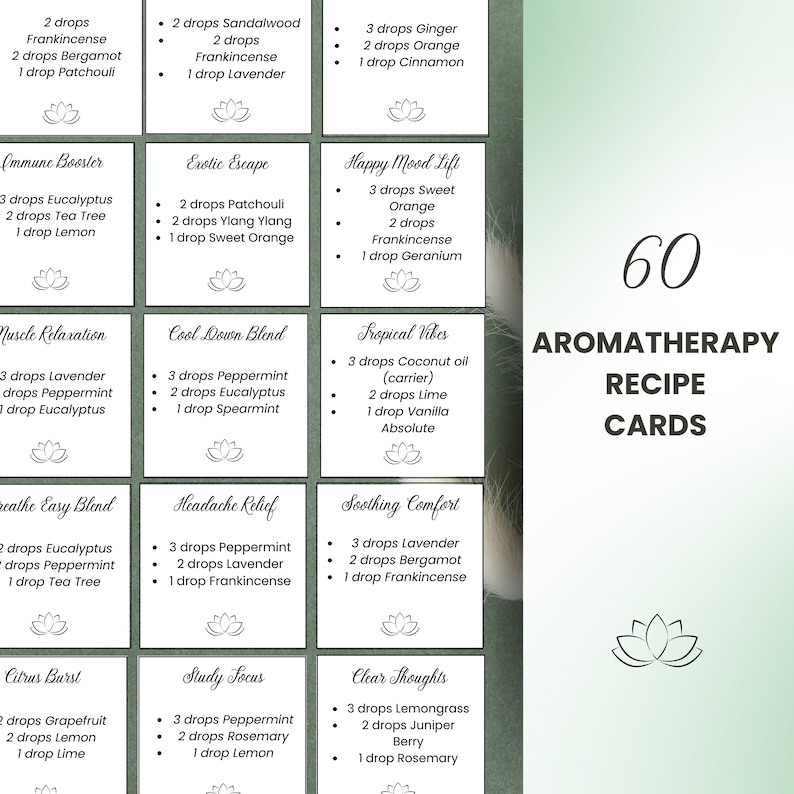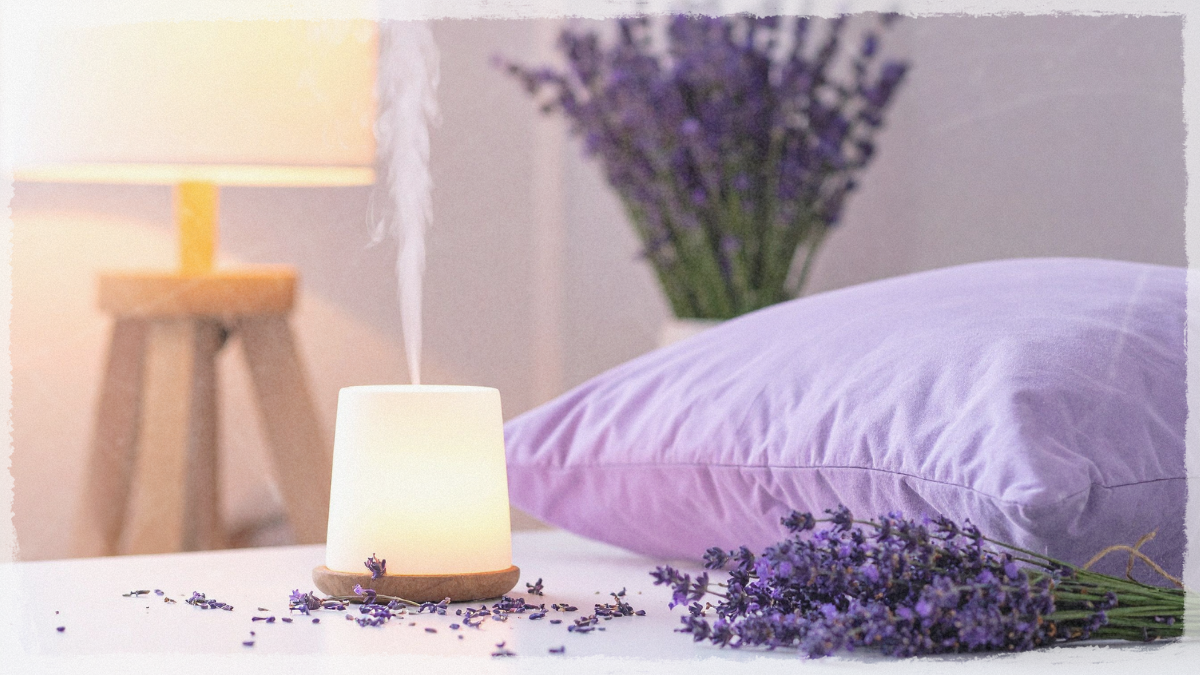The Struggle with Sleep
It’s late at night. You’ve turned off your phone, the room is dark, but your mind is racing. You replay the day’s conversations, tomorrow’s tasks, or simply stare at the ceiling waiting for sleep to come. If this sounds familiar, you’re not alone. Millions of people worldwide struggle with sleep issues—whether it’s trouble falling asleep, staying asleep, or waking up feeling unrested.
While modern medicine offers sleep aids, many people are turning to natural solutions to support better rest. One of the most loved and effective methods is aromatherapy. With the right essential oils, blends, and rituals, aromatherapy can calm the mind, relax the body, and prepare you for a night of restorative sleep.
This guide will walk you through the science behind aromatherapy, the best oils for sleep, practical ways to use them, recipes you can try at home, and tips to create your own bedtime ritual. By the end, you’ll feel equipped to use aromatherapy as a powerful tool for better rest.
The Science Behind Aromatherapy and Sleep
Aromatherapy isn’t just about pleasant scents—it’s rooted in how smells affect the brain and body.
When you inhale essential oils, the aromatic molecules travel through your nose to the olfactory system, directly connected to the limbic system, the part of the brain responsible for emotions, memories, and relaxation. This is why certain scents instantly trigger calmness, while others energize you.
Studies show that oils like lavender can:
- Lower heart rate and blood pressure
- Reduce anxiety before sleep
- Increase slow-wave (deep) sleep, the most restorative stage of rest
In short: aromatherapy helps by calming the nervous system, reducing stress hormones, and signaling your body that it’s safe to sleep.

Top Essential Oils for Better Sleep
Not all oils are equal when it comes to sleep. Here are the most effective ones:
1. Lavender Oil 🌸
The superstar of sleep. Lavender reduces stress, anxiety, and insomnia symptoms. It’s been shown in clinical studies to improve both the quality and duration of sleep.
How to use: Diffuse 2–3 drops at night, or add a drop to your pillow.
2. Chamomile Oil 🍵
Roman chamomile, in particular, has soothing, sedative-like effects. It calms the nervous system and helps those who struggle with restlessness.
How to use: Add to a bath before bed, or mix with a carrier oil for a massage.
3. Bergamot Oil 🍊
Unlike most citrus oils, bergamot is calming instead of stimulating. It reduces cortisol levels and promotes relaxation.
How to use: Diffuse in combination with lavender or cedarwood.
4. Cedarwood Oil 🌲
Earthy and grounding, cedarwood encourages the release of serotonin, which the body converts to melatonin—the sleep hormone.
How to use: Apply diluted cedarwood oil to the bottom of your feet before bed.
5. Sandalwood Oil 🌿
Rich and woody, sandalwood calms overthinking and promotes emotional balance. It’s especially good for people who wake up during the night.
How to use: Add a few drops to a diffuser or blend with lavender for pillow spray.
6. Ylang Ylang 🌼
This floral oil lowers blood pressure and heart rate, helping the body wind down.
How to use: Mix with chamomile in a roll-on blend for stress relief.
7. Clary Sage 🌱
Known for balancing hormones and reducing tension, clary sage is excellent for sleep problems related to stress or hormonal imbalance.
How to use: Inhale directly from the bottle or diffuse with lavender.
How to Use Aromatherapy for Sleep
Essential oils can be used in many ways. Here are the most effective methods:
1. Diffusers
Ultrasonic diffusers are one of the easiest ways to use oils. Add water, a few drops of essential oil, and let the diffuser release a fine mist into the room. This not only scents the space but also sets a calming atmosphere.
Tip: Start diffusing 30 minutes before bedtime so your room is ready when you enter.
2. Pillow Sprays
Mix essential oils with distilled water and witch hazel or alcohol in a spray bottle. Lightly mist your pillow and sheets for a subtle aroma that lasts through the night.
DIY Recipe:
- 2 oz distilled water
- 1 tsp witch hazel
- 6 drops lavender
- 3 drops chamomile
- 2 drops cedarwood
3. Bedtime Baths
Warm baths enhance relaxation. Adding essential oils transforms your bath into a therapeutic experience.
How to use safely: Mix oils with a carrier (like coconut milk, jojoba oil, or Epsom salt) before adding to water. Never drop oils directly into the bath.
4. Massage Oils
Massaging diluted oils into your shoulders, neck, or feet helps release muscle tension while inhaling the aroma.
Blend idea:
- 2 tbsp sweet almond oil
- 4 drops lavender
- 2 drops clary sage
- 2 drops sandalwood
5. Roll-On Blends
A portable way to use aromatherapy. Roll onto wrists, temples, or the soles of your feet before sleep.
6. Steam Inhalation
For instant relaxation, add 2 drops of oil to a bowl of hot water. Lean over with a towel over your head and inhale deeply for 5 minutes.

DIY Blends and Recipes
Here are a few blends to try at home:
Calming Sleep Blend (Diffuser)
- 3 drops lavender
- 2 drops bergamot
- 1 drop cedarwood
Deep Sleep Pillow Spray
- 4 drops chamomile
- 3 drops lavender
- 2 drops sandalwood
Stress-Relief Roll-On
- 5 drops ylang ylang
- 5 drops clary sage
- 10 ml carrier oil (jojoba or coconut)
Bedtime Bath Soak
- ½ cup Epsom salt
- 3 drops lavender
- 2 drops chamomile
- 1 tbsp coconut oil
Creating a Bedtime Aromatherapy Ritual
It’s not just about oils—it’s about routine. By creating a bedtime ritual, your body learns to associate certain scents with sleep. Here’s a sample routine:
- One hour before bed: Turn off bright screens, dim the lights.
- 30 minutes before bed: Diffuse a calming blend or prepare your bath.
- After bath: Apply a roll-on blend to wrists and feet.
- Right before sleep: Spray your pillow with lavender-chamomile mist.
- Optional: Journal or practice light stretching while inhaling the aroma.
Consistency is key—using aromatherapy the same way every night conditions your mind and body for rest.

Common Mistakes to Avoid
Even natural remedies need to be used properly. Here are mistakes to watch out for:
- Using too much oil: Strong scents can overstimulate instead of relax. Start small (2–3 drops).
- Applying undiluted oils: Always dilute with a carrier oil to avoid skin irritation.
- Using stimulating oils at night: Peppermint, rosemary, and most citrus oils energize—avoid them before bed.
- Inconsistency: One night won’t fix your sleep. Use aromatherapy regularly for best results.
Your Natural Sleep Companion
Sleep is one of the most essential pillars of health, yet so many of us struggle with it. Aromatherapy offers a gentle, natural, and enjoyable solution—one that not only improves sleep but also transforms your nightly routine into a moment of self-care.
By choosing the right oils, experimenting with blends, and creating a calming ritual, you can train your body and mind to embrace rest. Tonight, instead of tossing and turning, imagine stepping into a room filled with the soothing scent of lavender and chamomile, your body melting into the sheets, your thoughts quieting, and sleep coming naturally.
Your journey to better rest starts with a single breath. 🌙✨
🌸 Want a Handy Guide for Your Aromatherapy Journey?
If you’re just starting out with essential oils or want ready-to-use blends for better sleep, these resources can make your wellness journey easier:


Disclaimer:
This article is for informational and educational purposes only. Aromatherapy and essential oils can support relaxation and wellness, but they are not a substitute for professional medical advice, diagnosis, or treatment. Always consult your healthcare provider before using essential oils, especially if you are pregnant, breastfeeding, taking medication, or have a medical condition. Use essential oils safely and as directed.





